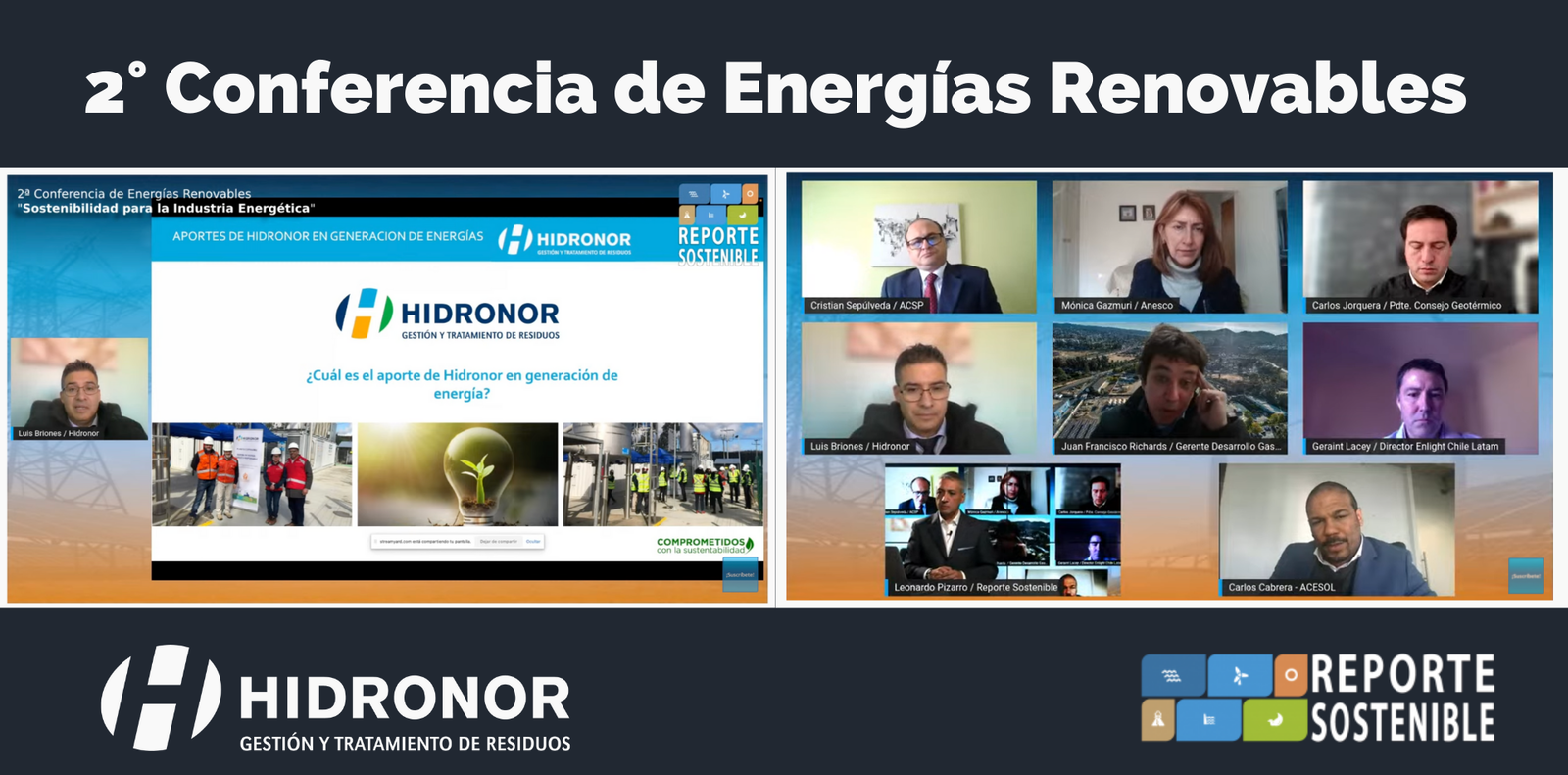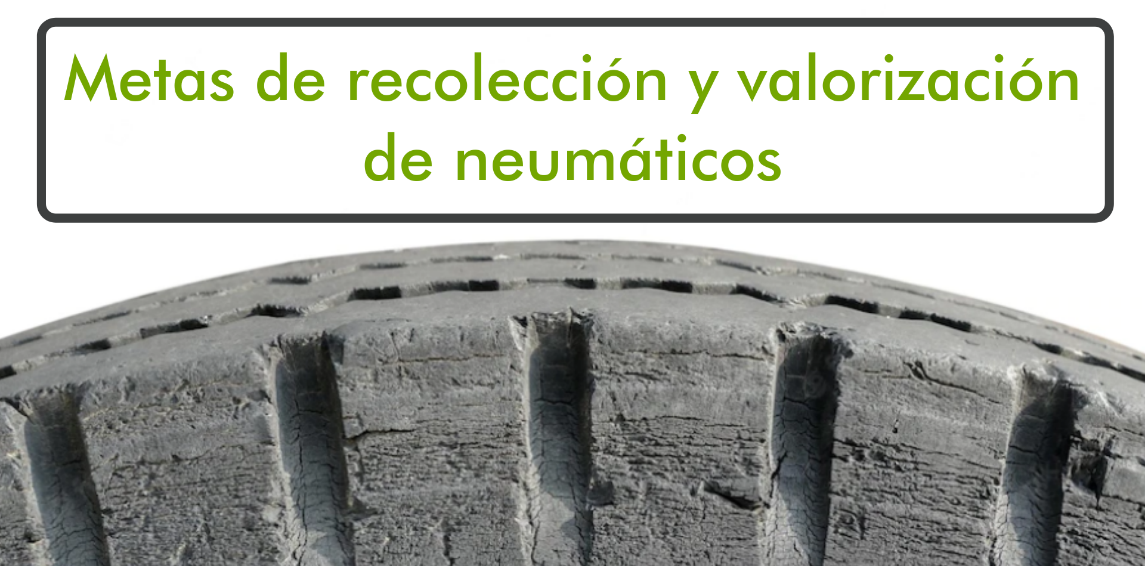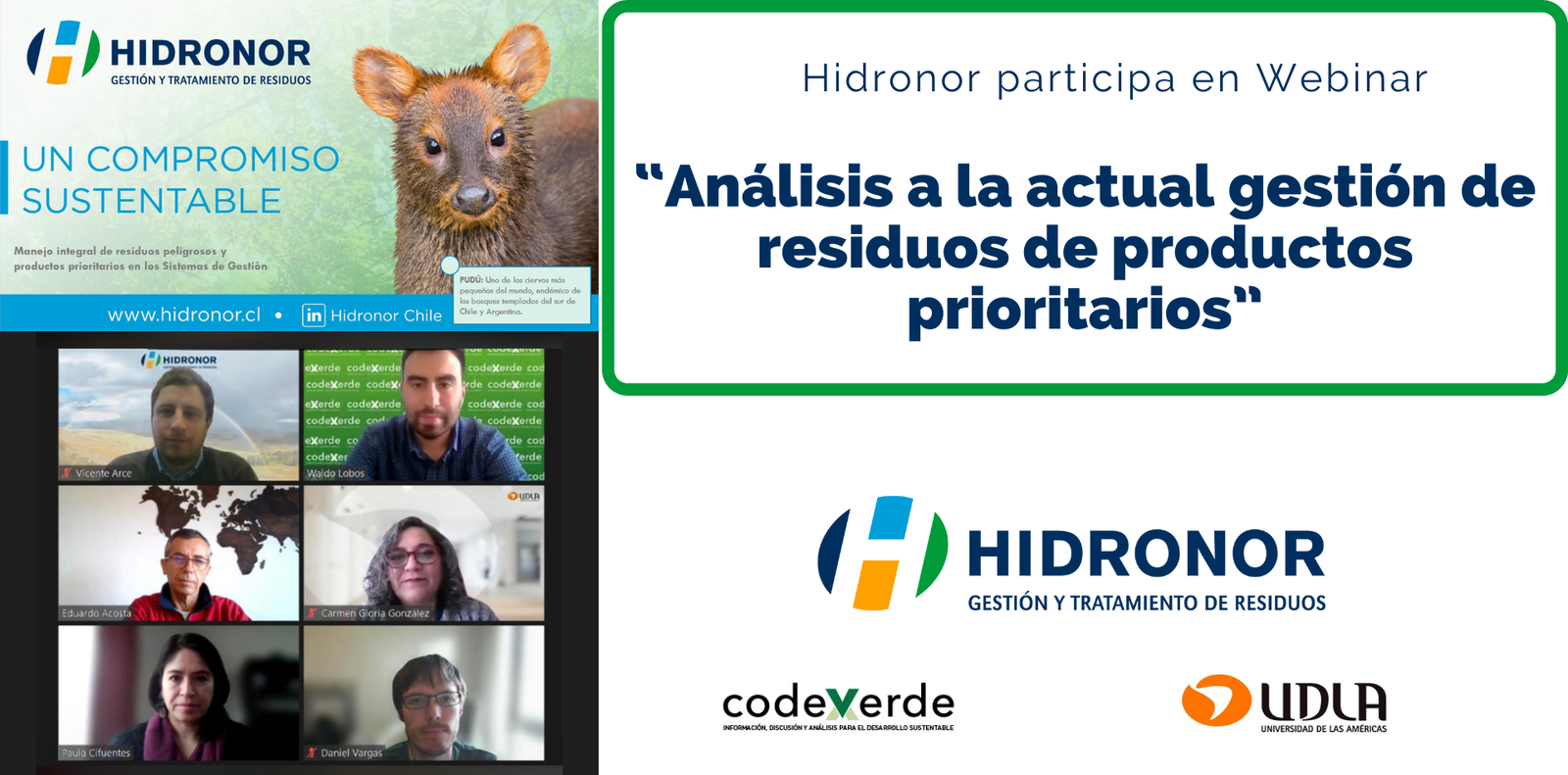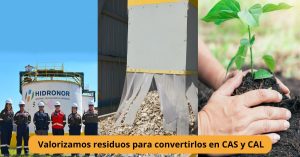
Hidronor presented Responsible Management of Industrial Waste at the 2nd Renewable Energy Conference: "Sustainability for the Energy Industry"
Los últimos años han puesto pie firme en el acelerador para la masificación del uso de energías renovables no convencionales (ERNC) en los proyectos industriales









